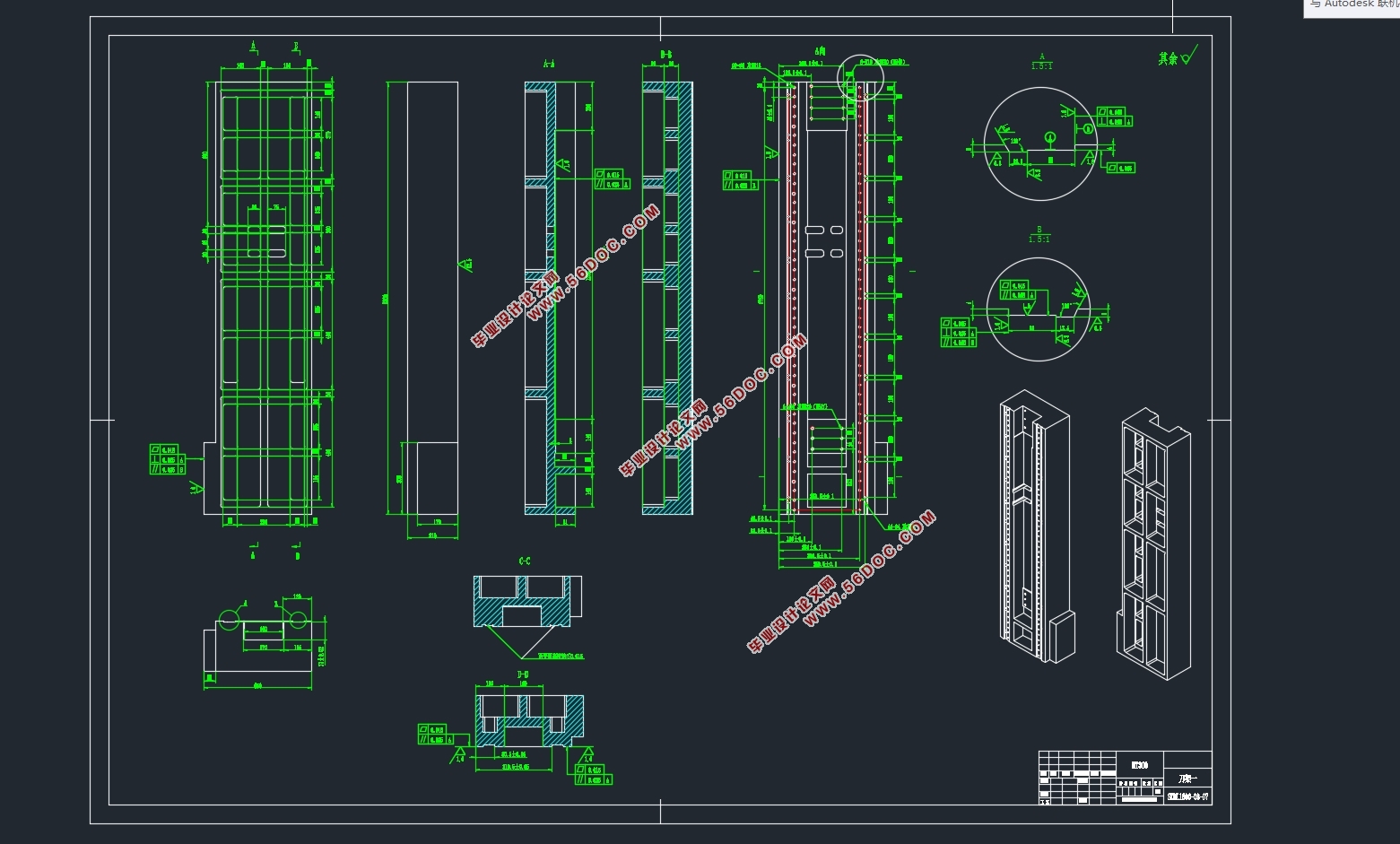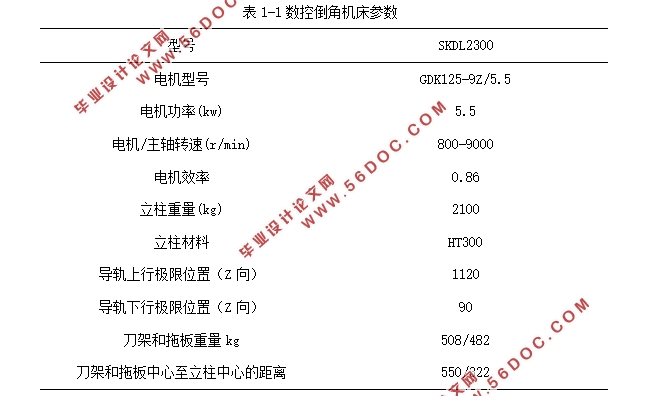数控倒角机床刀架动静态分析及优化设计(含CAD图)
来源:wenku7.com 资料编号:WK717713 资料等级:★★★★★ %E8%B5%84%E6%96%99%E7%BC%96%E5%8F%B7%EF%BC%9AWK717713
以下是资料介绍,如需要完整的请充值下载。
1.无需注册登录,支付后按照提示操作即可获取该资料.
2.资料以网页介绍的为准,下载后不会有水印.资料仅供学习参考之用. 密 保 惠 帮助
资料介绍
数控倒角机床刀架动静态分析及优化设计(含CAD图)(开题报告,论文说明书14600字,CAD图1张)
摘要
刀架的动静态特性和性能对机床整机的加工精度,稳定性和抗振性具有重要影响,是优化设计的关键零部件。本文以数控倒角机床刀架为研究对象,结合理论分析和有限元仿真分析,并且结合实际情况对数控倒角机床刀架进行轻量化设计。本文的研究主要包含以下4个部分:
(1)三维建模。采用Solidworks软件,建立刀架的三维模型,保持滑块的相对位置不动,可以拖动滑块查看刀架的运动路径。
(2)动静态特性分析。依据所建立的三维模型,确定好刀架在加工时的载荷、边界条件、选取分析参数,对上述模型进行动静态特性分析。
(3)结构优化。确定倒角机刀架所要优化的尺寸和位置,并且确定好目标函数和限制条件,在优化之前需要在三维模型里面建立全局变量,导入AnsysWorkbench中变成可识别的参数。
(4)结果验证。将尺寸圆整修改后的刀架模型再次分析验证是否满足预期目标,比如质量和低阶固有频率是否减小。
关键词:刀架静态分析模态分析结构优化
Dynamic and static analysis and optimization design of CNC chamfering machine tool rest
ABSTRACT
The dynamic and static characteristics and performance of the tool holder have an important influence on the machining precision,stability and vibration resistance of the machine tool and are the key components for optimal design.This article takes the numerical chamfering machine tool holder as the research object,combines the theoretical analysis and the finite element simulation analysis,and combines the actual situation to carry on the lightweight design to the numerical control chamfering machine tool holder. The research in this article mainly includes the following four parts:
(1) Three-dimensional modeling and simulation. Using solidworks software,a three-dimensional model of the tool holder was established. The relative position of the slider was maintained, and the slider could be dragged to view the motion path of the tool holder.
(2) Analysis of static and dynamic characteristics. According to the established three-dimensional model,the load,boundary conditions,and analysis parameters of the tool holder are determined,and the dynamic and static characteristics of the model are analyzed.
(3) Structural optimization. Determine the size and position of the chamfering tool holder to be optimized,and determine the objective function and constraints. Before optimization,global variables need to be created in the 3D model andimported into the Ansys Workbench to become recognizable parameters.
(4) Verification of results. The tool holder model modified by rounding the dimensions is again analyzed to verify whether it meets the intended target.
Keywords:modelingstatic analysismodal analysistool holder optimizatio


目录
摘要 I
ABSTRACT II
第一章 绪论 1
1.1课题来源 1
1.2课题研究的背景和意义 1
1.3数控铣床刀架的研究发展概况 3
1.3.1刀架的动态特性 3
1.3.2刀架的静态分析 4
1.3.3刀架结构的优化设计 5
1.4课题主要的研究内容 6
1.5本章小结 9
第二章刀架的静态分析 10
2.1刀架有限元静态分析简介 10
2. 1.1静态分析介绍 10
2.1.2静态分析边界条件的介绍 10
2.2切削力的计算和刀架受力点 11
2.2.1切削力计算 12
2.2.2确定刀架的受力点 12
2. 3刀架静态分析 13
2.3.1建立刀架三维模型 13
2.3.2设置材料库和材料属性 14
2.3.3网格的划分 15
2.3.4施加载荷和约束条件 16
2.3.5静态分析分析结果处理 16
2.4 本章小结 18
第三章刀架的模态分析 19
3.1.模态分析理论 19
3.2在有限元中的模态分析 20
3.2.1建立刀架有限元模型 20
3.2.2施加约束和求解 20
3.2.3模态分析处理结果 21
3.3 模态结果分析 23
3.4 本章小结 24
第四章刀架的优化设计 25
4.1优化设计概述 25
4.2确定刀架优化的三要素 26
4.2.1刀架的目标函数 26
4.2.2选择参数变量 26
4.2.3变量的约束 28
4.3刀架尺寸的优化 28
4.3.1设置全局变量 28
4.3.2灵敏度分析 28
4.3.3刀架尺寸优化求解 29
4.4刀架优化结果验证 30
4.5 本章小结 32
第五章结论与展望 33
5.1研究总结 33
5.2研究展望 33
参考文献 35
致谢 37
|





